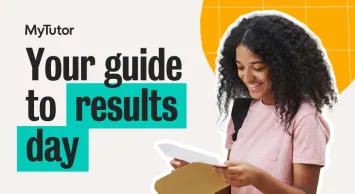5 top tips for boosting pupil attendance
Attendance has to be one of the biggest issues faced by schools right now. That’s why it’s one of the top topics we’re talking about here in the MyTutor offices.
As you know, since the pandemic, school attendance has dropped significantly and still not recovered. In fact reports show, “[...] for Secondary students, absence rates in the first half of the 2023 autumn term were higher than in the same period a year before.” Illness is still the main cause of absence for pupils and a lot of work is happening in schools already to get kids back into class and engaging.
And we know that attendance is front of mind when it comes to your additional school interventions too. That’s why we’ve been working hard to find the best ways to improve attendance for your tutoring programmes, because getting pupils engaged in tutoring is a lot easier when they’ve attended their first lesson.
Here are our 5 top tips for improving pupil attendance that you can implement in your school tutoring programme today.
Top tips for pupil attendance
1. Speak to your pupils first
The number 1 port of call is always to chat with your pupils and find out why they’re not attending their tutoring sessions.
Common reasons for missed sessions include illness, anxiety about starting something new and (the classic) forgetting they had a lesson. While there are always genuine reasons a pupil might miss a session, repeat absences can indicate a wider problem.
Once you understand what the issue is then there are plenty of ways to tackle these common problems (see below). You can also remind them of all the benefits of tutoring: building confidence, getting the grades they want and talking to a near-peer mentor who can help raise aspirations and help plan a path to the next steps.
At the start of a programme, it’s a helpful idea to ask pupils to sign a commitment form. This is an informal contract showing they understand what’s expected of them in the programme, something helpful to remind pupils of if they aren’t attending.
You can find an example pupil commitment form here to help keep pupils accountable.
2. Trial lesson reminders
To prevent pupils from forgetting lessons it can be a good idea to arrange pre-lesson reminders over text. You can also ask Form Tutors to remind their students on lesson day.
For extra coverage, involving parents can further help by sending them a pre-lesson reminder - because who hasn’t needed a prompt from a parent or guardian in their lives?
Remember: we’re here to help you with reminders and are testing new pupil attendance-focused comms to make sure no one is missing lessons because they forgot.
Find our lesson reminder chart, example lesson reminder email template and an example chaser email here.
3. Provide incentives
Healthy competition is a great way to motivate your pupils to attend more of their lessons. Many of our schools start leaderboards to celebrate the top attendees, which can motivate others to try and keep up.
We also see schools successfully offering incentives to pupils such as skipping the lunch line or free prom tickets for Year 11’s. Your incentive will depend on the year group and your school.
It’s important to remember to reward attendance in all forms. For example, if a pupil is struggling to show up at all then rewarding attending 2 lessons in a row could be the right level of incentive to get them going.
Similarly, for top attendees, rewards for a 100% streak are important too. Don’t forget to reward the pupils who are already engaging to keep them that way.
Get example incentive posters and certificates here.
4. Give home a call
Parental buy-in is key. If a pupil has missed several weeks in a row, a call home can do wonders. It’s worth reminding them that their child’s place on the programme comes at a cost to the school and that their child can’t reap the rewards of tutoring if they don’t go.
This can also be a way to understand more about why the pupil isn’t attending. You can remind parents that MyTutor lessons can be attended from home too. We offer flexibility to make sure pupils can access tutoring around their schedule.
Another top tip from Fiona Stanley, our Teacher Advisory Board member, is that incentives can work for parents as well as pupils. She recommends: “Incentives like supermarket or Amazon vouchers, or a discount at a local restaurant, can incentivise parental engagement.”
5. Switch out pupils
As a last resort, we recommend swapping out low-attending pupils with someone else. It may seem extreme but can be a good way to nudge the pupil that’s not showing up.
It also means you’ll continue to see value in your lessons for other pupils who can use the extra support. So bear in mind that you can swap pupils into your programme if a student persistently fails to attend and your tactics just aren’t reaching them.
Find out how to switch pupils on your MyTutor programme here.
There we have it, our top tips on pupil attendance. These have all been chosen by our expert team who work with schools like yours every day running impactful online tutoring programmes.
For more top tips on attendance, contact MyTutor. We’re always on hand to help you make the most of your programme.


